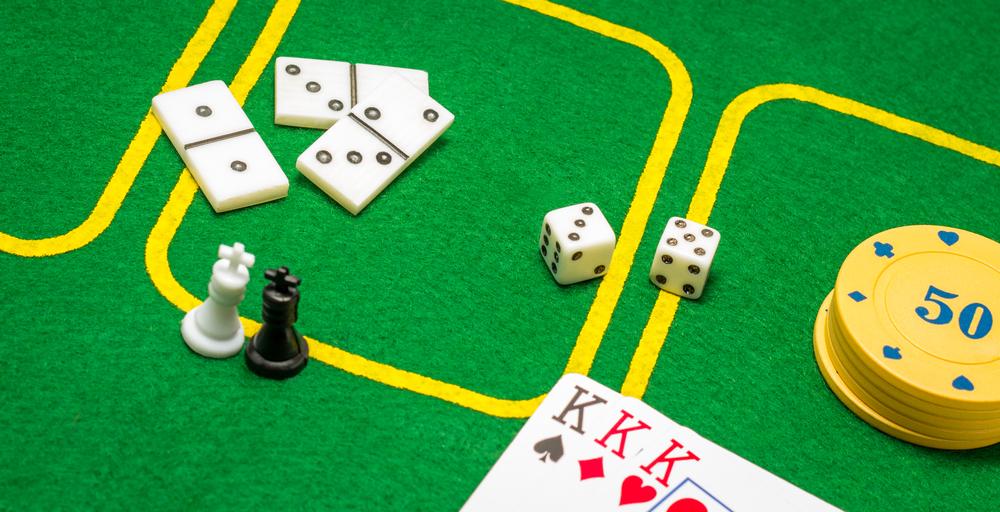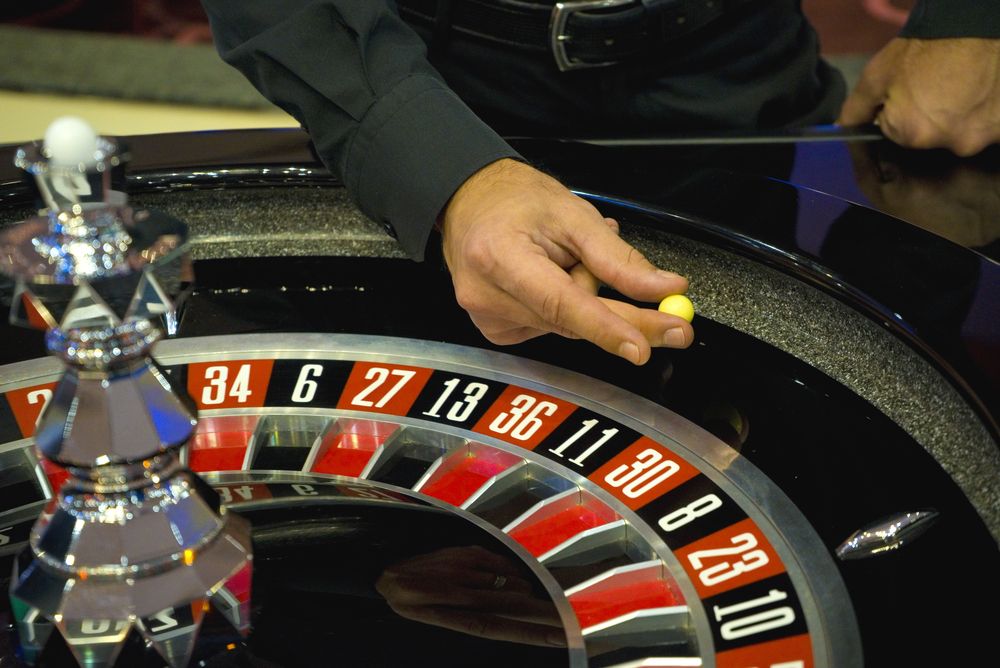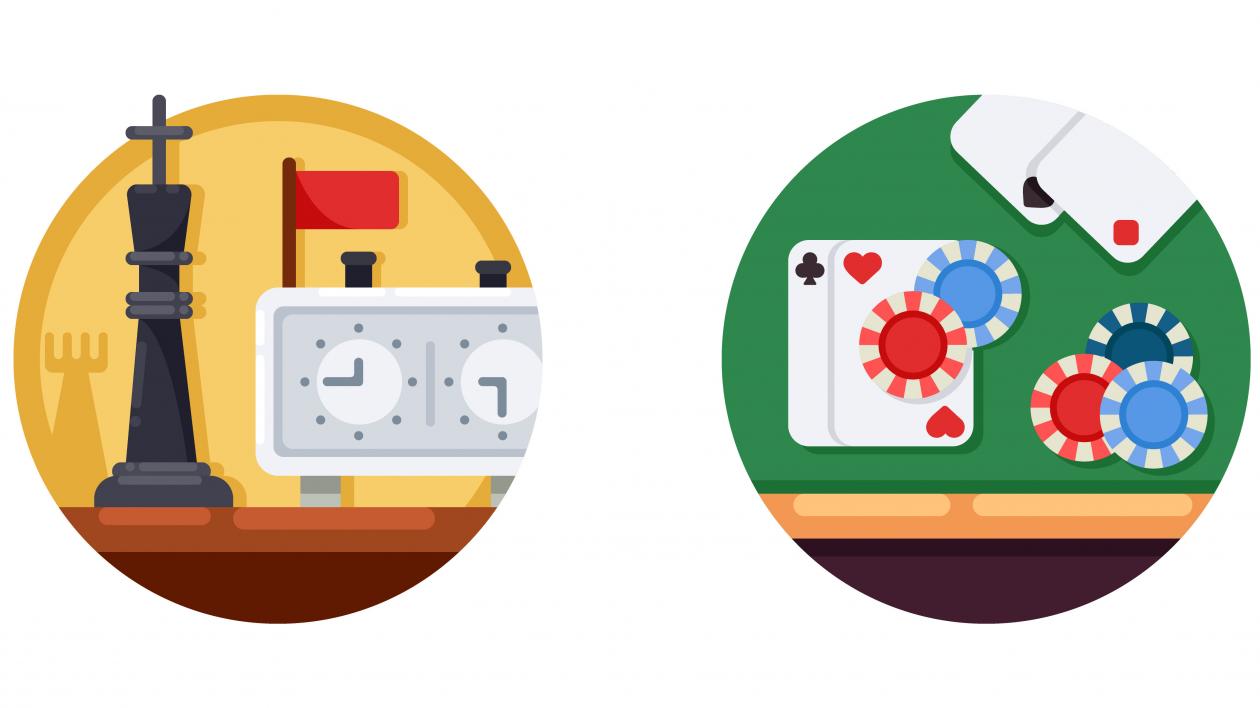
Should You Gamble In Chess?
Many chess tournaments have taken place in casinos, and many famous grandmasters have left the lion's share of their prizes at the playing tables.
I personally know a guy who won a good prize in the Knock-Out World Chess Championship in Las Vegas (1999), yet he ended up borrowing money from his friends for his travel back home. I hope his sad example is the best warning against gambling.
Indeed, why play a game that is stacked against you? If you bet on black or red at roulette, you have just a 47.37 percent chance (18/38) to win on a standard double-zero wheel.
But what if you really want to try your luck in a casino, what is the best strategy to maximize your chances? Say you have $100 to lose; how should you bet? Should you place 100 bets, each for $1, or just do one $100 bet?

A group of mathematicians wrote an interesting paper, "How to Gamble If You Must." If you don't want to see a lot of formulas, I'll spare you some time and give you their conclusion:
With timid play, the gambler makes a small constant bet on each game until she is ruined or reaches the target. This turns out to be a very bad strategy in unfair games, but does have the advantage of a relatively large expected number of games. If you play this strategy, you will almost certainly be ruined, but at least you get to gamble for a while.
With bold play, the gambler bets her entire fortune or what she needs to reach the target, whichever is smaller. This is an optimal strategy in the unfair
case; no strategy can do better. But it’s very quick! If you play this strategy, there’s a good chance that your gambling will be over after just a few games (often just one!).
Mathematicians have a penchant to over-complicate things. You don't need to write a white paper laden with formulas to prove that if you play a game with a negative expectation, then the more you play the bigger the chance that you'll lose. Just go to any probability simulator that does a Monte Carlo coin toss and do 10 flips first and then do 100,000 flips. In the first case I got 70 percent heads and 30 percent tails and in the second case I got 50.27 percent heads and 49.73 percent tails.
You see that in the short term, the deviation from the expected value (50 percent) can be huge, but the more you play, the closer you'll get to the expected value.
You are probably thinking that all this gambling stuff is nice and dandy, but what does it have to do with chess?

Well, imagine that you are playing an opponent whose rating is 300-400 points higher than yours. You see, the odds, based on the rating difference, are not in your favor, but just like in the gambling, where the odds are stacked against you, there is still a chance to win!
So, what's your best strategy?
Let's look at the following game where a player rated 2379 is playing a super grandmaster rated 2701. According to this calculator, his chance to beat the monster is only about 13.5 percent, which is much worse than at the roulette table. If he played a long positional game, then the superior technique and experience of his higher-rated opponent would prevail for sure. Therefore, IM Samsonkin decided to go all in and scored a spectacular upset.
Can you guess his moves?
You shouldn't think that only a direct attack against the opponent's king would do the trick in such a situation. Since just one good tactical shot could instantly decide the game, getting a positional initiative early in the game and putting your opponent under pressure can also achieve the goal. Look at the following game.
Even though GM Huzman is a very strong grandmaster, his chances against the world champion were just 18.6 percent. Yet he kept Kasparov under pressure until he blundered!
Let me rephrase what the mathematicians said about gambling. In my opinion it is absolutely applicable to chess:
Timid play is a very bad strategy against a much stronger opponent, but has the advantage that the game will probably last long. If you play this strategy you will almost certainly lose, but at least you'll spend a lot of time in the company of a very strong player.
Bold aggressive play is the optimal strategy against a much stronger opponent; no strategy can do better! But if you employ this strategy, there is a chance that the game will be very short and your fun will be over just after a couple dozen moves!






